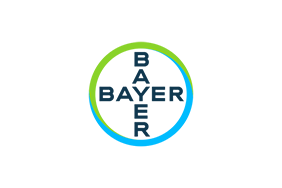Companion Resource Guides Offering Practical Advice for Business And Education Partners Now Available from Bayer Corporation
Published 07-11-07
Submitted by Bayer
PITTSBURG- July 11, 2007 - Bayer Corporation has published and is making widely available the second report resulting from the Best Practice K-12 STEM (science, technology, engineering and math) Education Diversity Forum the company hosted last fall in Washington, D.C., as part of its national award-winning Making Science Make Sense(R) program.
The forum addressed the dual issues of diversity and underrepresentation by women, African-Americans, Native Americans and Hispanic Americans in STEM fields and showcased for business leaders and others exemplary pre-college STEM education programs that are fostering a more diverse STEM pipeline. The goal was to provide business leaders with the opportunity to support and/or replicate such programs in their local communities.
The new report, titled Bridging the Diversity Gap in Science and Engineering: Introducing STEM Industries to K-12 Best Practice Programs - Highlights Report, presents the most significant ideas and findings that emerged during the daylong forum.
"As a company that has long been involved in helping to strengthen science education around the country, we know firsthand that businesses can engage successfully in education partnerships, if they possess the necessary commitment and will," said Dr. Attila Molnar, President and CEO, Bayer Corporation. "The report, like the forum itself, provides practical information to business and education organizations interested in forming public-private partnerships designed to foster a more diverse STEM pipeline and workforce at a time when most experts agree the United States must aggressively harness all of its potential STEM talent."
Among the findings outlined in the report are the key characteristics common among many best practice programs that business leaders should be cognizant of when selecting an education partner. The report also highlights the challenges and rewards that business leaders and their education partners may encounter during the course of their working relationship.
The new highlights report is a companion to the first resource guide issued by Bayer at the time of the forum. The 77-page Planting the Seeds for a Diverse U.S. STEM Pipeline: A Compendium of Best Practice K-12 STEM Education Programs features a sampling of some of the country’s exemplary programs that have a proven track record of helping students "“ especially girls and minorities "“ to participate and achieve in STEM. The 21 best practice K-12 programs highlighted by Bayer, 14 of which were showcased at the forum, are a mix of formal in-school and informal after-school programs from different regions of the United Sates and represent urban, suburban and rural locales.
Bayer is making both resource guides available to interested parties free via the Internet. To access online versions of both the highlights report and compendium, please visit www.BayerUS.com/MSMS/stem.
About Bayer Corporation and Making Science Make Sense
Making Science Make Sense(R) (MSMS) is a Bayer company-wide initiative that advances science literacy through hands-on, inquiry-based science learning, employee volunteerism and public education. It is one of 300 corporate social responsibility (CSR) programs Bayer supports globally. Currently in the United States, 12 Bayer sites operate local MSMS programs, which together feature a national volunteer corps of more than 1,000 employees.
Bayer Corporation, headquartered in Pittsburgh, is a subsidiary of Bayer AG, an international health care, nutrition and innovative materials group based in Leverkusen, Germany. In North America, Bayer had 2006 net sales of 7.8 billion euros and employed 17,200 at year end. Bayer's three subgroups, Bayer HealthCare, Bayer CropScience and Bayer MaterialScience, improve people’s lives through a broad range of essential products that help diagnose, prevent and treat diseases; protect crops and enhance yields; and advance automobile safety and durability. Bayer AG stock is a component of the DAX and is listed on the New York Stock Exchange (ticker symbol: BAY).

Bayer
Bayer
Bayer: Science For A Better Life
Bayer is a global enterprise with core competencies in the Life Science fields of health care and agriculture. Its products and services are designed to benefit people and improve their quality of life. At the same time, the Group aims to create value through innovation, growth and high earning power. Bayer is committed to the principles of sustainable development and to its social and ethical responsibilities as a corporate citizen. In fiscal 2015, the Group employed around 117,000 people and had sales of EUR 46.3 billion. Capital expenditures amounted to EUR 2.6 billion, R&D expenses to EUR 4.3billion. These figures include those for the high-tech polymers business, which was floated on the stock market as an independent company named Covestro on October 6, 2015. For more information, go to www.bayer.com.
More from Bayer

